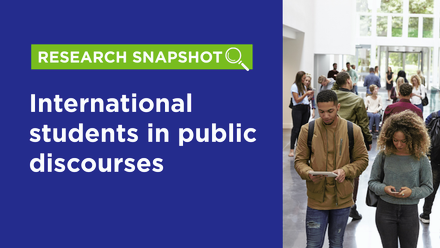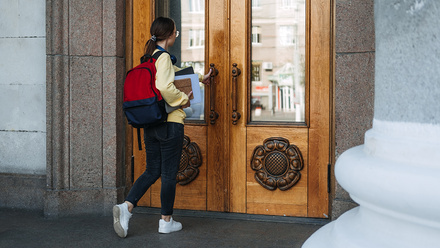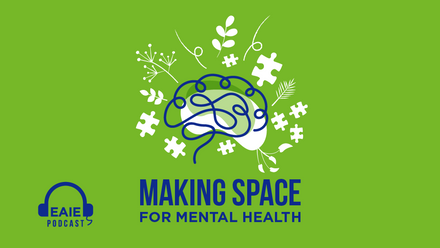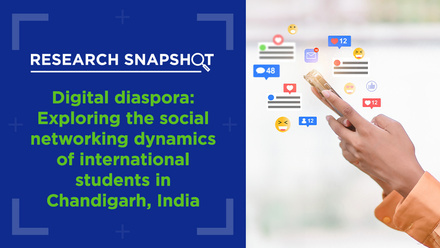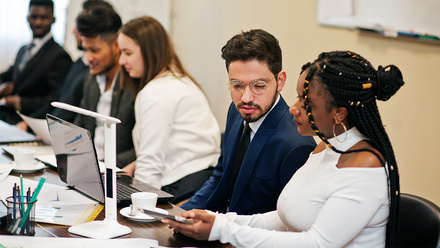Fostering inclusion: Showcasing successful refugee integration in Austria’s higher education landscape

In 2015, Austria experienced a surge in refugee arrivals from war zones such as Syria, Iraq and Afghanistan. This prompted the swift implementation of various initiatives at our higher education institutions to support refugee's integration in the higher education sector. Among these efforts was the MORE initiative by UNIKO (Austrian University Conference), as well as diverse activities at the universities of applied sciences that provided German language classes and access to various other courses. Besides this, actions were taken by students and scholars with refugee backgrounds, whose peer-group component played a particularly valuable role in refugee integration within the university setting.
Integration is a dynamic, multi-level process involving structural, social and cultural/emotional dimensions. Higher education institutions have access to each level of this process
Integration is a dynamic, multi-level process involving structural, social and cultural/emotional dimensions. Higher education institutions have access to each level of this process by promoting academic success (structural), fostering a sense of belonging (emotional) and encouraging friendships and interactions with both academic staff and local students (social).
To provide a comprehensive view of the numerous initiatives on offer the OeAD – Austria’s Agency for Education and Internationalisation – introduced the oead4refugees platform to guide refugees towards educational opportunities. From across the many initiatives collected by the OeAD, the MORE Programme at Johannes Kepler University Linz stands out as an effective model of refugee integration in higher education, providing scholarships, support structures and networking events to accustom refugees to Austrian life in university and beyond.
As part of the MORE Initiative the Johannes Kepler University Linz offers a comprehensive support system for refugee students, which was developed with financial support from Borealis AG. Two different programmes offer help in bridging financial gaps and provide important resources. The MOREclassic programme is designed for pre-study or non-degree-seeking students and provides: scholarships to cover tuition fees, course discounts, allowances for travel to university, access to support services and regular information and networking events. The second major support programme, the Borealis-MORE Scholarship, offers degree-seeking students a monthly scholarship (€110 or €360, depending on their residency status), a travel allowance for getting to university, coverage of tuition fees and regular networking and meeting events. In return, the scholarship holders must sign a "Learning Agreement" requiring the completion of 12 ECTS credits per semester.
A call for applications for these two programmes is issued annually. The Borealis-MORE Scholarship provides 25 spaces, and spaces on the MOREclassic programme are provided through a needs-based approach. Therefore, the Johannes Kepler University Linz ensures that refugee students receive necessary support for their academic success and social integration. Through initiatives like MORE, universities play a central part in transforming the lives of refugee students and fostering inclusive academic communities.
However, despite these initiatives and support from various stakeholders, significant challenges persist. Foremost among these challenges is the lack of nationwide financial support, which poses a major obstacle to refugee integration in higher education. Furthermore, Austrian universities demand a high level of self-reliance, which presents a significant hurdle for refugees unfamiliar with the Austrian higher education system. Additionally, limited personal support services, high-threshold admission criteria, complex recognition of academic credentials and costly preparatory courses create substantial barriers to refugee integration and completion of study programmes. These obstacles also hinder long-term entry into the local job market.
To facilitate the integration of refugee researchers into the European labour market the OeAD – as part of EURAXESS Austria – participated in two EU-funded projects: EURAXESS TOP IV and "Bridge for Researchers in Danger Going to Europe II" – BRiDGE II. From the wealth of project results the OeAD, together with the project partners, developed the Guide on Labour Market Integration of Refugee Researchers.
Paradoxically, while Austria experiences a shortage of skilled labour, refugees with potential in STEM fields remain underutilised. In 2016 a study based on a survey by the Wittgenstein Centre for Demography and Global Human Capital, entitled "Human Capital, Values, and Attitudes of Persons Seeking Refuge in Austria in 2015", concluded that a majority of those who fled to Austria in 2015 had completed compulsory schooling and 26 percent even had a university education, yet there is a preference for foreign labour over tapping into this domestic talent pool. Moreover, nationwide data on refugee educational attainment and enrolment in higher education is lacking.
The integration of refugees at Austrian higher education institutions presents both challenges and opportunities. However, without comprehensive support measures and the removal of various barriers this potential remains untapped. Financial aid, mentorship programmes and a welcoming culture are essential for a sustainable inclusion. A holistic approach involving all levels of higher education institutions and society is needed to effectively foster refugee integration in higher education and in our societies.

